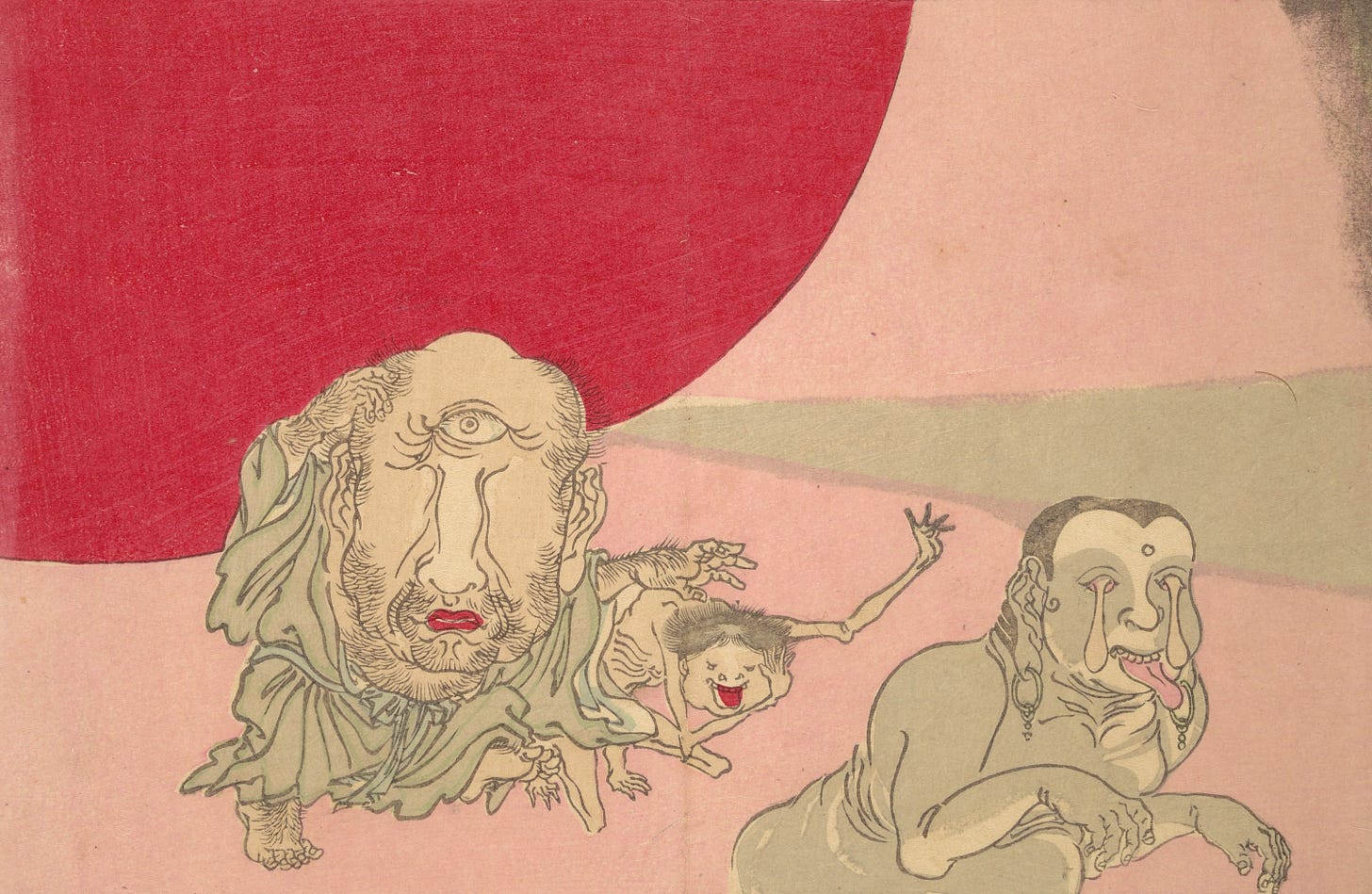Slop versus scum: A brief theory of the internet
The two faces of the platforms' war against specificity.

Whenever I lay down and open TikTok to deactivate my selfhood for a while, the For You algorithm serves me a particular type of content whose existence I’ve been puzzling over for a while: pirated scenes from movies and TV shows.
I will always hover over a Stellan Skarsgård monologue, so the algorithm learns I love Hollywood infringement and serves me more. The libertarian interpretation of what’s happening here is that this kind of clip scum will benevolently drive me toward Max to stream “Chernobyl” again. But on actually-existing TikTok, there’s no label that identifies the show or the actor, nor is there a “add to my watchlist” button linked to Max so that Mr. Skarsgård and his writers have some prayer of earning some of their union-negotiated residuals for their work. (Six hours of watching ads around Stellan Skarsgård on Max is six hours I’m not watching ads around Stellan Skarsgård on TikTok, after all.) You usually have to root around in the comments to figure out what you’re looking at, and your fellow TikTokers, hip to the scam, tell you that you’re actually watching “Andor.”
I was thinking about this obliteration of citation as I read the news that OpenAI’s ChatGPT still can’t figure out how to hyperlink to the news articles it’s scraping. Despite OpenAI striking deals with news companies where presumably some money changed hands, its prediction machine just keep fabricating URLs, happy to keep churning out information-shaped slop. Being accurate would be hard, and making everything easier is exactly why your CEO keeps running toward Sam Altman’s open arms.
The theory
The digital platforms of 2024 have a growing bias against the new and a growing bias against citation, with AI slop and engagement scum serving as the two faces of our increasingly atemporal, anti-specific internet.
Slop is whatever got distributed with indifference for its own existence. Scum is whatever got distributed with indifference for where it came from.
Slop is a smearing together of many contexts. Scum is an excision from an obscured context.
Slop exists to indulge the laziness of the distributor. Scum exists to indulge the laziness of the consumer.
One of my biases is a belief that things come from places and were usually made by people, and that knowing about those places and people is one of early steps on the path of enlightenment. (As Vice President Harris wisely and correctly observed, we did not fall from the coconut tree; we really do exist in the context of all in which we live and what came before us.)
Slop and scum are the enemy of specificity, and specificity is the friend of humanism. There are other souls toiling on the other side of this big river of shit. If you knew them better, it might change how you know yourself.

